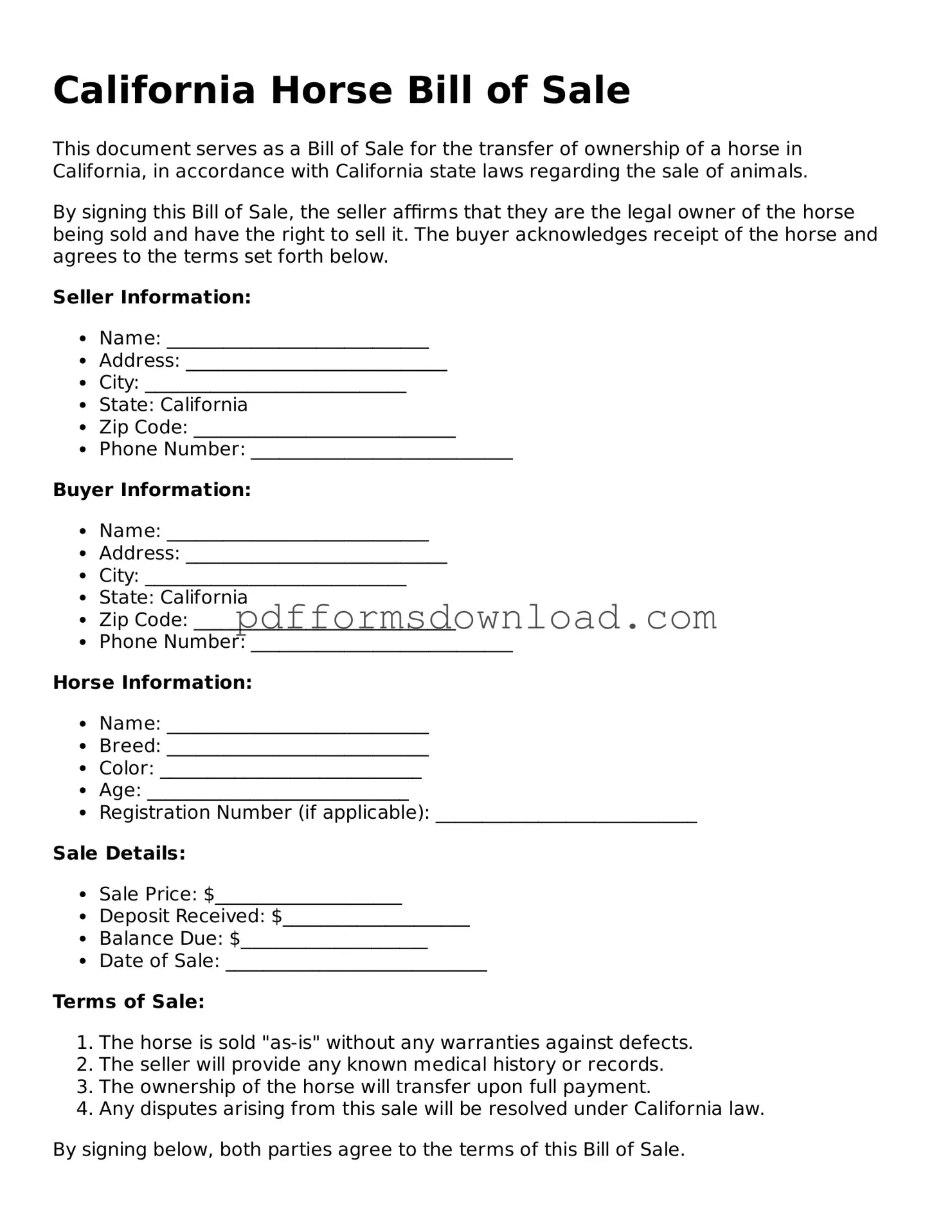What is a California Horse Bill of Sale?
A California Horse Bill of Sale is a legal document that serves as proof of the sale and transfer of ownership of a horse. This form outlines the details of the transaction, including the buyer's and seller's information, the horse's description, and the sale price. It provides both parties with a record of the sale and can be useful for future reference or in case of disputes.
Why is a Horse Bill of Sale important?
The Horse Bill of Sale is important because it protects both the buyer and the seller. For the buyer, it serves as evidence of ownership, which may be necessary for registration or insurance purposes. For the seller, it provides proof that the horse has been sold, which can help avoid liability for any issues that arise after the sale. Additionally, it can help establish the terms of the sale, reducing the risk of misunderstandings.
What information is typically included in the form?
The form typically includes the following information: the names and addresses of the buyer and seller, a detailed description of the horse (including breed, age, color, and any identifying marks), the sale price, and the date of the transaction. Some forms may also include terms regarding warranties or guarantees, as well as signatures from both parties.
Is a Horse Bill of Sale required by law in California?
While a Horse Bill of Sale is not legally required in California, it is highly recommended. Having a written record of the sale can help prevent disputes and provide clarity regarding the terms of the transaction. Additionally, certain organizations or registries may require proof of ownership for registration purposes.
Can the Horse Bill of Sale be used for other animals?
While the Horse Bill of Sale is specifically designed for horses, similar forms can be adapted for other types of livestock or animals. However, it is essential to ensure that the document is tailored to the specific type of animal being sold, as different species may have unique requirements or considerations.
What if the horse has health issues?
If the horse has known health issues, it is crucial to disclose this information in the Bill of Sale. Transparency about the horse's health status protects both the buyer and the seller. The seller may want to include a clause regarding the horse's condition, and the buyer should consider this information when deciding to proceed with the purchase.
Can the Bill of Sale be modified after signing?
Once the Horse Bill of Sale is signed by both parties, it generally cannot be modified without mutual consent. If changes are necessary, both the buyer and seller should agree to the modifications and sign a new document. This ensures that both parties are aware of and agree to any changes made to the original agreement.
What should I do if I lose the Bill of Sale?
If the Horse Bill of Sale is lost, the parties involved should try to recreate the document by recalling the details of the transaction. Both the buyer and seller can agree to draft a new Bill of Sale, including the same information as the original. It is advisable to keep multiple copies of important documents to avoid such situations in the future.
Where can I obtain a California Horse Bill of Sale form?
A California Horse Bill of Sale form can be obtained from various sources, including online legal document services, local equestrian organizations, or legal stationery stores. It is essential to ensure that the form complies with California laws and includes all necessary information for a valid transaction.

